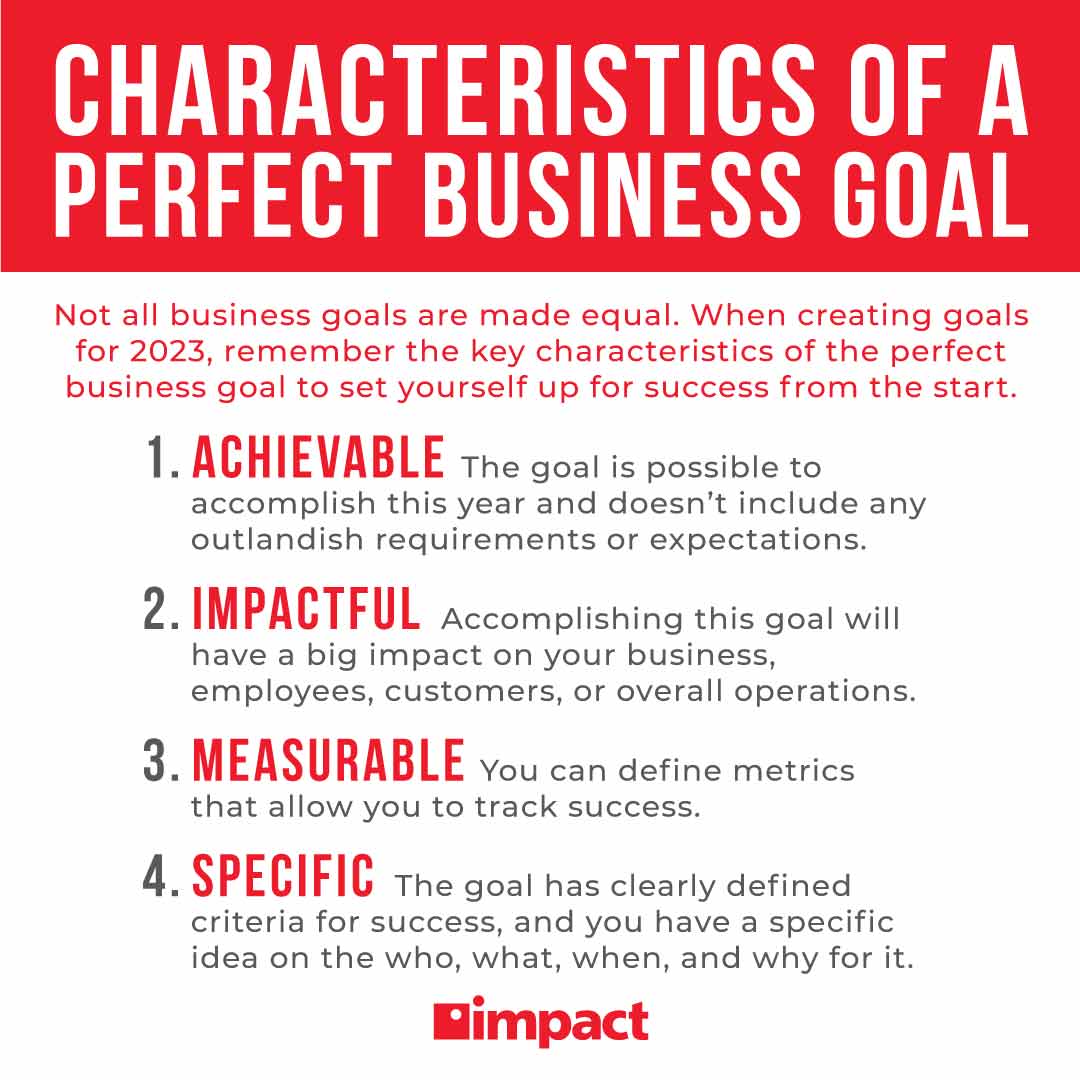As the new year rolls in, everybody starts to look ahead to what business goals for 2023 they want to accomplish, where they want to go, and what they want their business to look like after another year. These goals and resolutions will drive us forward but, all too often, these goals are dropped, forgotten, or failed along the way for a variety of reasons.
Discover some tips, technologies, and strategies that you can use in your business to create stronger goals, track your progress throughout the year, and, most importantly, accomplish what you need to fulfill your vision for the future.
Get started toward your digital transformation and implement the tools needed to achieve success in 2023 by downloading our eBook, Fast-Tracking Your Digital Transformation.
The Benefits of Creating Business Goals
Setting goals for your business is an important part of starting the new year on the right foot. Establishing what you want to accomplish and where you want to go helps provide structure for your teams and helps them understand what they can do to help achieve it, along with other benefits, such as:
- 80% of employees who set goals feel more engaged in their work, especially when they know how their goals connect to the bigger picture.
- Teams with goals are prouder of their company, take more pride in their work, and are more committed to their organization.
Creating Business Goals for 2023
To get off to a strong start in the new year, it helps when businesses have a defined version of what success looks like. This means setting realistic goals and resolutions to strive for. But this is sometimes easier said than done.
When considering something as important as what you want to accomplish in a year, it’s important to give it meaningful thought to determine what goals you could set that will have the biggest impact on your company when you achieve them.
To come up with goals like this, there are a few things you should consider:
- What held you back in 2022? Identifying weaknesses so you can find ways to strengthen them is a great place to start when deciding on new business goals. Think about the processes that seemed to slow things down, cause bottlenecks, or create frustration and set goals to find solutions to these problems.
- What do you want to prioritize? Think about what ideas that came up throughout the year that you may have set aside to take on later. Which of these should you prioritize for the new year? Or just think about what processes, departments, or other areas of your business that you want to prioritize.
- Did you achieve your goals in 2022? If you failed to accomplish your goals or stick to your resolutions in 2022, what stood in your way? Determine if these past goals are still relevant to your business in the new year and consider rethinking them to become more achievable in 2023.
- What smaller tasks/goals could have big impacts on your organization? Oftentimes, small changes to processes or simple optimizations in how your business operates can have a big impact on your overall success. Think about what small things you could do in 2023.
Asking these types of questions will help you create achievable, meaningful business goals for 2023 to shape a successful new year.
Creating Realistic, Achievable Goals
When creating new goals, remember the basic elements of a SMART goal:
- Specific: The goal or resolution should specifically define the who, what, when, where, and why of it. State what you want to accomplish, why it’s important, what you can do to get there, who is involved, and more to make it as detailed as possible.
- Measurable: You need to be able to measure your goal. Determine what metrics you can use to measure your progress. Maybe you want to shorten your customer service reply times, raise customer satisfaction scores, or simply raise sales numbers. No matter what the number is, make sure there’s a way to effectively measure success.
- Achievable: Your goal should be achievable, meaning it needs to realistically be something you can accomplish in one calendar year. Unachievable goals tend to have negative effects on morale, making your teams less motivated and discouraging them.
- Relevant: Goals should make sense in the context of your business operations. Employees should be able to easily understand how this goal relates to overall company success and how their role plays a part in it.
- Time-Bound: Lastly, your goals should have realistic timelines. Set target dates for deliverables, progress markers, check-ins, and more. It’s easy to set goals in January and continually think “we’ve got all year!” A set timeline creates more urgency and helps everyone understand what needs to be done and when.
